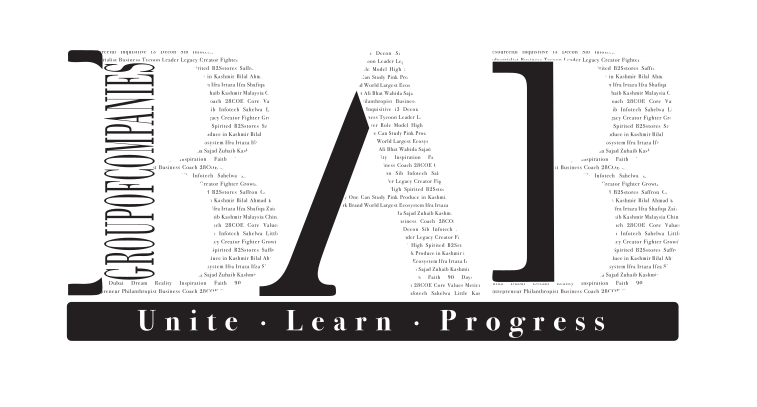Introduction
In the fast-paced and ever-evolving business world, effective communication is the bedrock upon which successful enterprises are built. Dr. Bilal Ahmad Bhat, Founder of BAB Group of Companies, highlights the pivotal role of communication in overcoming business challenges. This article delves into how communication can address various business challenges, offering actionable insights and strategies to leverage effective communication for business success.
The Importance of Communication in Business
- Enhancing Decision-Making Processes
Effective communication ensures that all relevant information is available to stakeholders when making decisions. It helps in gathering diverse perspectives, evaluating options thoroughly, and arriving at well-informed decisions. Clear communication channels enable quick dissemination of information, ensuring that decisions are implemented efficiently.
- Fostering Innovation and Creativity
Open communication fosters an environment where employees feel comfortable sharing their ideas and suggestions. This culture of openness encourages creativity and innovation, leading to the development of new products, services, and business strategies that can give a company a competitive edge.
- Building Strong Relationships
Strong relationships with employees, customers, suppliers, and other stakeholders are crucial for business success. Effective communication builds trust and rapport, ensuring that all parties are aligned with the company’s goals and values. It also helps in resolving conflicts amicably, maintaining healthy and productive relationships.
- Enhancing Employee Engagement and Productivity
Engaged employees are more productive and committed to their work. Regular communication, feedback, and recognition help in keeping employees motivated and aligned with the company’s objectives. Effective communication ensures that employees understand their roles, responsibilities, and the impact of their work on the organization’s success.
- Navigating Change and Uncertainty
Change is a constant in the business world. Effective communication is essential for managing change and guiding the organization through periods of uncertainty. Transparent communication about the reasons for change, the expected outcomes, and the steps involved helps in reducing resistance and gaining buy-in from employees and other stakeholders.
Addressing Business Challenges through Communication
- Managing Remote Teams
With the rise of remote work, managing teams spread across different locations presents a unique set of challenges. Effective communication tools and strategies are essential for maintaining collaboration, productivity, and team cohesion. Regular check-ins, virtual meetings, and collaborative platforms can help in bridging the geographical gap and ensuring that remote teams remain connected and engaged.
- Resolving Conflicts
Conflicts are inevitable in any organization. Effective communication is key to resolving conflicts constructively. Active listening, empathy, and open dialogue help in understanding different perspectives and finding mutually acceptable solutions. Clear communication of expectations and responsibilities can also prevent conflicts from arising in the first place.
- Managing Customer Expectations
Customer satisfaction is critical for business success. Clear and transparent communication with customers helps in managing their expectations and addressing their concerns promptly. Providing regular updates, being responsive to inquiries, and handling complaints with empathy and professionalism enhance customer trust and loyalty.
- Adapting to Market Changes
The business environment is constantly changing, and companies need to be agile and responsive. Effective communication helps in staying informed about market trends, customer preferences, and competitive actions. It enables quick decision-making and timely adjustments to business strategies, ensuring that the company remains competitive and relevant.
- Aligning the Organization with Strategic Goals
For a company to achieve its strategic goals, all employees need to be aligned with the organization’s vision and mission. Effective communication ensures that everyone understands the company’s objectives, their individual roles in achieving these goals, and how their work contributes to the overall success of the organization. Regular updates and feedback help in maintaining this alignment and driving progress towards strategic goals.
Strategies for Effective Business Communication
- Establish Clear Communication Channels
Define and establish clear communication channels for different types of information and interactions. This includes formal channels like emails, meetings, and reports, as well as informal channels like instant messaging and social media. Ensuring that everyone knows where and how to communicate helps in reducing misunderstandings and ensuring that information flows smoothly.
- Promote a Culture of Open Communication
Create a culture where open and honest communication is encouraged and valued. This involves promoting transparency, active listening, and constructive feedback. Leaders should model these behaviors and create an environment where employees feel safe to share their ideas, concerns, and feedback.
- Use Technology to Facilitate Communication
Leverage technology to enhance communication within the organization. This includes using collaboration tools, video conferencing, project management software, and intranet platforms to facilitate real-time communication and collaboration. Ensure that employees are trained to use these tools effectively.
- Communicate Clearly and Concisely
Clear and concise communication is essential for ensuring that messages are understood correctly. Avoid jargon and complex language, and focus on delivering key messages in a straightforward manner. Use visuals, summaries, and bullet points to enhance understanding.
- Provide Regular Updates and Feedback
Keep employees and other stakeholders informed with regular updates on the company’s performance, goals, and any changes that may affect them. Provide feedback on their work and recognize their contributions. Regular communication helps in maintaining engagement and alignment with the company’s objectives.
- Foster Cross-Functional Collaboration
Encourage collaboration between different departments and teams to ensure that diverse perspectives are considered and that everyone is working towards common goals. Cross-functional collaboration enhances innovation, problem-solving, and overall organizational effectiveness.
- Train Leaders in Communication Skills
Leaders play a crucial role in setting the tone for communication within the organization. Provide training to leaders in effective communication skills, including active listening, conflict resolution, and delivering feedback. Effective leadership communication enhances team morale and productivity.
Conclusion
Effective communication is a powerful tool for overcoming business challenges and driving organizational success. By building strong relationships, fostering innovation, enhancing employee engagement, navigating change, and aligning the organization with strategic goals, businesses can leverage communication to achieve their objectives.
Dr. Bilal Ahmad Bhat, Founder of BAB Group of Companies, underscores the transformative impact of communication in addressing business challenges. By investing in communication tools, promoting a culture of open communication, and implementing clear communication strategies, companies can overcome obstacles and achieve sustainable growth.
In today’s dynamic business environment, mastering the art of communication is more important than ever. By prioritizing effective communication, businesses can build a solid foundation for long-term success and make a positive impact on their employees, customers, and the broader community.

